World Politics, Human Rights, and International Law
World Politics, Human Rights, and International Law examines the functional dynamics between these concepts based upon the author's professional experiences dealing with real world situations, problems, and crises: from the Bush, Obama, and Trump administrations; Iraq, Iran, Palestine, Israel, and Syria; Bosnia and Herzegovina; successfully litigating genocide at the World Court; indicting Slobodan Milosevic at the International Criminal Tribunal for the Former Yugoslavia; prosecuting American torture and enforced disappearances at the International Criminal Court; opposing nuclear, chemical, and biological weapons; citizen civil resistance against state crimes; protecting Indigenous Peoples, etc. The reader can see how the author defined these predicaments from the perspective of international law and human rights, and then proceeded to grapple with them and to rectify them. This book demonstrates the power of international law and human rights to make a positive difference for international peace and justice as well as for the good of humanity in the real world of international power politics. By reading this book the citizen will be empowered and inspired to do the same.

Global Middle East: Into the Twenty-First Century
Localities, countries, and regions develop through complex interactions with others. This striking volume highlights global interconnectedness seen through the prism of the Middle East, both “global-in” and “global-out.” It delves into the region’s scientific, artistic, economic, political, religious, and intellectual formations and traces how they have taken shape through a dynamic set of encounters and exchanges.
Written in short and accessible essays by prominent experts on the region, Global Middle East covers topics including God, Rumi, food, film, fashion, music, sports, science, and the flow of people, goods, and ideas. The text explores social and political movements from human rights, Salafism, and cosmopolitanism to radicalism and revolutions. Using the insights of global studies, students will glean new perspectives about the region.
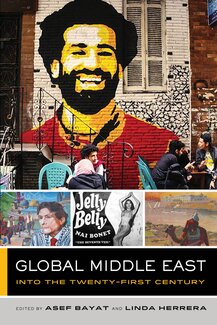
Counterlife: Slavery after Resistance and Social Death
In Counterlife Christopher Freeburg poses a question to contemporary studies of slavery and its aftereffects: what if freedom, agency, and domination weren't the overarching terms used for thinking about Black life? In pursuit of this question, Freeburg submits that current scholarship is too preoccupied with demonstrating enslaved Africans' acts of political resistance, and instead he considers Black social life beyond such concepts. He examines a rich array of cultural texts that depict slavery—from works by Frederick Douglass, Radcliffe Bailey, and Edward Jones to spirituals, the television cartoon The Boondocks, and Quentin Tarantino's Django Unchained—to show how enslaved Africans created meaning through artistic creativity, religious practice, and historical awareness both separate from and alongside concerns about freedom. By arguing for the impossibility of tracing slave subjects solely through their pursuits of freedom, Freeburg reminds readers of the arresting power and beauty that the enigmas of Black social life contain.
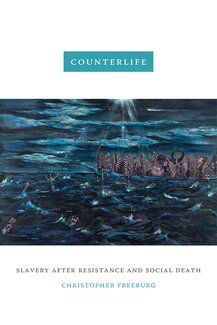
Animalia: An Anti-Imperial Bestiary for Our Times
From yaks and vultures to whales and platypuses, animals have played central roles in the history of British imperial control. The contributors to Animalia analyze twenty-six animals—domestic, feral, predatory, and mythical—whose relationship to imperial authorities and settler colonists reveals how the presumed racial supremacy of Europeans underwrote the history of Western imperialism. Victorian imperial authorities, adventurers, and colonists used animals as companions, military transportation, agricultural laborers, food sources, and status symbols. They also overhunted and destroyed ecosystems, laying the groundwork for what has come to be known as climate change. At the same time, animals such as lions, tigers, and mosquitoes interfered in the empire's racial, gendered, and political aspirations by challenging the imperial project’s sense of inevitability. Unconventional and innovative in form and approach, Animalia invites new ways to consider the consequences of imperial power by demonstrating how the politics of empire—in its racial, gendered, and sexualized forms—played out in multispecies relations across jurisdictions under British imperial control.
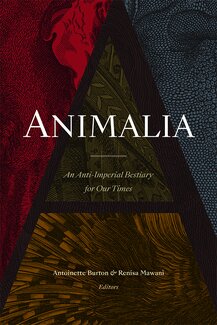
Histories of a Radical Book: E. P. Thompson and The Making of the English Working Class
For better or worse, E.P. Thompson’s monumental book The Making of the English Working Class has played an essential role in shaping the intellectual lives of generations of readers since its original publication in 1963. This collected volume explores the complex impact of Thompson’s book, both as an intellectual project and material object, relating it to the social and cultural history of the book form itself—an enduring artifact of English history.

Hindutva as Political Monotheism
In Hindutva as Political Monotheism, Anustup Basu offers a genealogical study of Hindutva—Hindu right-wing nationalism—to illustrate the significance of Western anthropology and political theory to the idea of India as a Hindu nation. Connecting Nazi jurist Carl Schmitt's notion of political theology to traditional theorems of Hindu sovereignty and nationhood, Basu demonstrates how Western and Indian theorists subsumed a vast array of polytheistic, pantheistic, and henotheistic cults featuring millions of gods into a singular edifice of faith. Basu exposes the purported “Hindu Nation” as itself an orientalist vision by analyzing three crucial moments: European anthropologists’ and Indian intellectuals’ invention of a unified Hinduism during the long nineteenth century; Indian ideologues’ adoption of ethnoreligious nationalism in pursuit of a single Hindu way of life in the twentieth century; and the transformations of this project in the era of finance capital, Bollywood, and new media. Arguing that Hindutva aligns with Enlightenment notions of nationalism, Basu foregrounds its significance not just to Narendra Modi's right-wing, anti-Muslim government but also to mainstream Indian nationalism and its credo of secularism and tolerance.
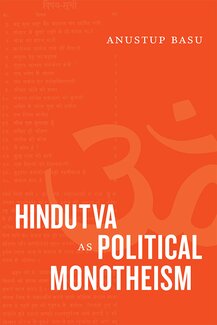
The Cambridge Companion to Queer Studies
This companion provides a guide to queer inquiry in literary and cultural studies. The essays represent new and emerging areas, including transgender studies, indigenous studies, disability studies, queer of color critique, performance studies, and studies of digital culture. Rather than being organized around a set of literary texts defined by a particular theme, literary movement, or demographic, this volume foregrounds a queer critical approach that moves across a wide array of literary traditions, genres, historical periods, national contexts, and media. This book traces the intellectual and political emergence of queer studies, addresses relevant critical debates in the field, provides an overview of queer approaches to genres, and explains how queer approaches have transformed understandings of key concepts in multiple fields.
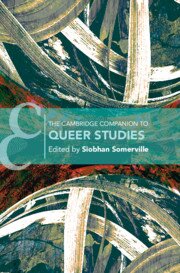
Sex, Love, and Gender: A Kantian Theory
Sex, Love, and Gender is the first volume to present a comprehensive philosophical theory that brings together all of Kant's practical philosophy — found across his works on ethics, justice, anthropology, history, and religion — and provides a critique of emotionally healthy and morally permissible sexual, loving, gendered being. By rethinking Kant's work on human nature and making space for sex, love, and gender within his moral accounts of freedom, the book shows how, despite his austere and even anti-sex, cisist, sexist, and heterosexist reputation, Kant's writings on happiness and virtue (Part I) and right (Part II) in fact yield fertile philosophical ground on which we can explore specific contemporary issues such as abortion, sexual orientation, sexual or gendered identity, marriage, trade in sexual services, and sex- or gender-based oppression. Indeed, Kant's philosophy provides us with resources to appreciate and value the diversity of human ways of loving and the existential importance of our embodied, social selves. Structured on a thematic basis, with introductions to assist those new to Kant's philosophy, this book will be a valuable resource for anyone who cares about these issues and wants to make sense of them.

Disruptive Situations: Fractal Orientalism and Queer Strategies in Beirut
Disruptive Situations challenges representations of contemporary Beirut as an exceptional space for LGBTQ people by highlighting everyday life in a city where violence is the norm. Ghassan Moussawi, a Beirut native, seeks to uncover the underlying processes of what he calls “fractal orientalism,” a relational understanding of modernity and cosmopolitanism that illustrates how transnational discourses of national and sexual exceptionalism operate on multiple scales in the Arab world.
Moussawi’s intrepid ethnography features the voices of women, gay men, and genderqueer persons in Beirut to examine how queer individuals negotiate life in this uncertain region. He examines “ al-wad’,” or “the situation,” to understand the practices that form these strategies and to raise questions about queer-friendly spaces in and beyond Beirut.
Disruptive Situations also shows how LGBTQ Beirutis resist reconciliation narratives and position their identities and visibility at different times as ways of simultaneously managing their multiple positionalities and al-wad’. Moussawi argues that the daily survival strategies in Beirut are queer—and not only enacted by LGBTQ people—since Beirutis are living amidst an already queer situation of ongoing precarity.
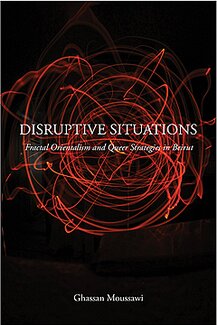
The Socialist Good Life: Desire, Development, and Standards of Living in Eastern Europe
What does the good life mean in a "backward" place? As communist regimes denigrated widespread unemployment and consumer excess in Western countries, socialist Eastern European states simultaneously legitimized their power through their apparent ability to satisfy consumers' needs. Moving beyond binaries of production and consumption, the essays collected here examine the lessons consumption studies can offer about ethnic and national identity and the role of economic expertise in shaping consumer behavior. From Polish VCRs to Ukrainian fashion boutiques, tropical fruits in the GDR to cinemas in Belgrade, The Socialist Good Life explores what consumption means in a worker state where communist ideology emphasizes collective needs over individual pleasures.
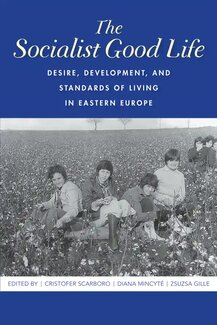
100 English Building
608 South Wright Street
Urbana, Illinois 61801